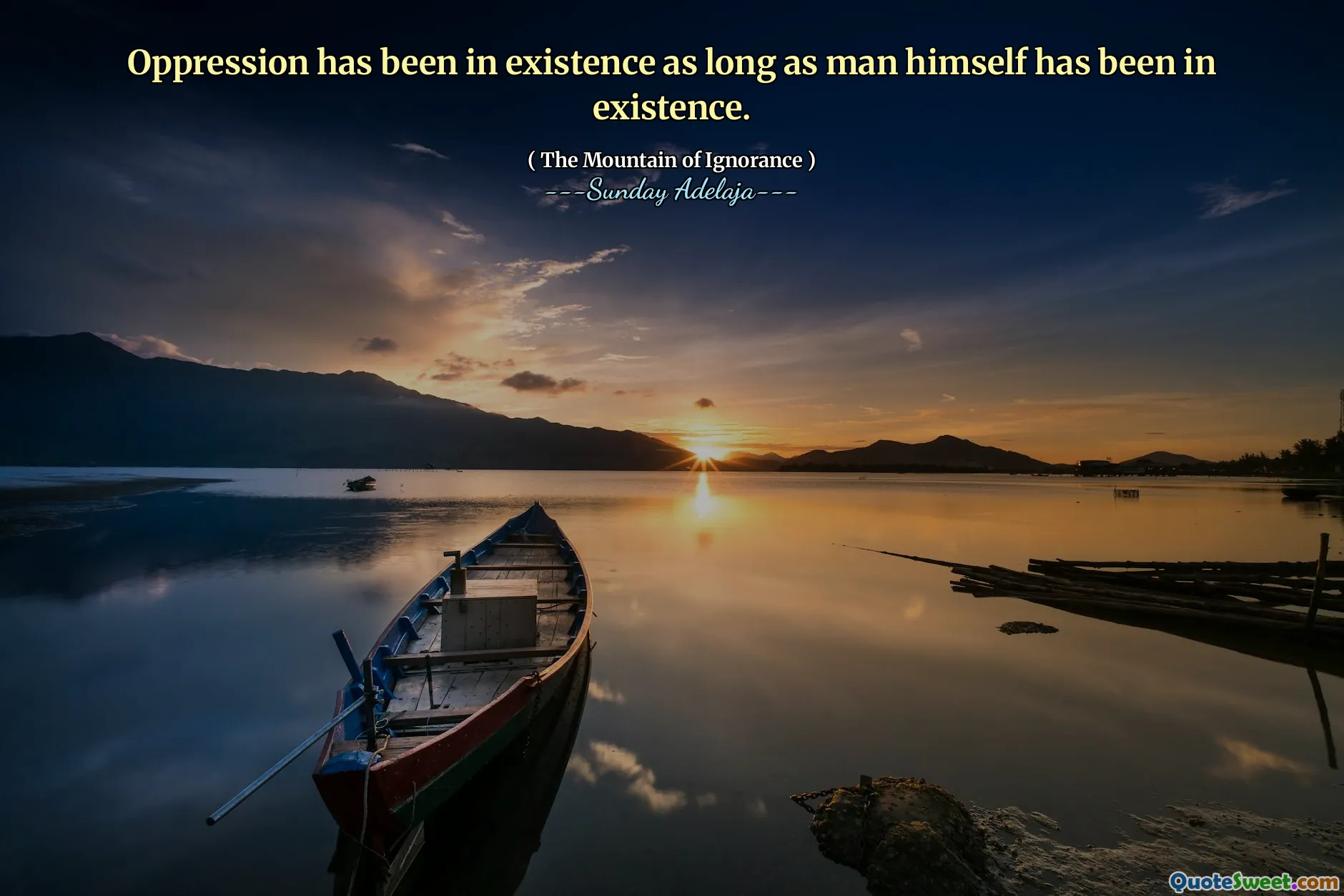
Oppression has been in existence as long as man himself has been in existence.
Throughout history, oppression has persisted as an underlying force shape-shifting through different eras and civilizations. It reveals a recurring pattern of power dynamics where the few exert control over the many, often justified by systems of inequality, prejudice, or fear. This enduring presence signifies that oppression is not merely an isolated incident but a fundamental aspect of human societies that has adapted over time. Recognizing this continuity challenges us to understand the deep-rooted nature of injustice and the importance of ongoing resistance and reform.
The quote invites us to reflect on the human condition, that the capacity for dominance, suppression, and exploitation is intrinsic to societal interactions. It acknowledges that oppression is not just a momentary or accidental occurrence but a persistent reality embedded within social, political, and economic structures. Confronting this truth calls for collective awareness, empathy, and action—learning from past mistakes and striving to construct more equitable systems.
Understanding that oppression has followed mankind throughout history urges us not to be complacent but to remain vigilant. Every era has witnessed struggles for liberation and justice, emphasizing that the fight against oppression is continuous. It also challenges individuals to consider their roles—whether as oppressors, victims, or allies—highlighting the importance of self-awareness and active participation in promoting human dignity.
In our contemporary world, remnants of historic oppression still influence marginalized communities. Recognizing the long-standing presence of oppression helps to foster a deeper compassion and a sense of responsibility to challenge ongoing injustices. Only through acknowledging its history can society hope to dismantle oppressive systems and work towards genuine equality and freedom.
This reflection aligns with insights from '(The Mountain of Ignorance)' by Sunday Adelaja, emphasizing the importance of awareness and proactive efforts in overcoming societal barriers.







